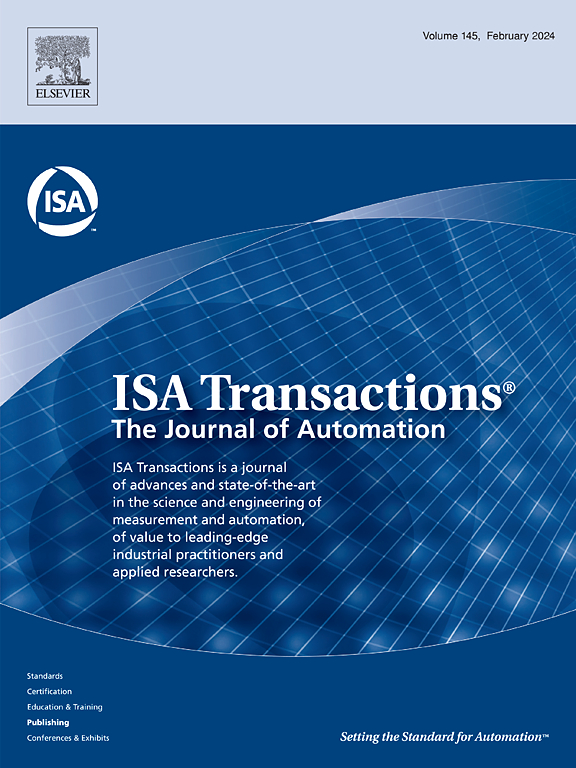严格反馈非线性先导系统的分布扩展状态观测器设计。
IF 6.3
2区 计算机科学
Q1 AUTOMATION & CONTROL SYSTEMS
引用次数: 0
摘要
了解领导者的状态和动态对于领导跟随控制至关重要。研究了定向通信拓扑下严格反馈非线性先导系统的分布式状态/不确定性估计问题。引线具有Hölder-growing非线性和匹配不确定性的特点。提出了一种由两个分布式扩展状态观测器(DESOs)组成的规定时间分布式估计方案。每个follower(观察者节点)只接收到来自邻居的一维输出估计,最多接收到来自leader系统的一维输出,有效地减少了通信负荷。首先,提出了一种规定时间的DESO (PTDESO)方法,使得每个follower可以在一个严格由单个参数规定的时间内重构leader的状态和不确定性,且该时间与初始条件一致。然后构造高增益DESO (HGDESO),实现渐近收敛,并在给定时间后将观测误差保持在原点的小邻域内。建立了保证两个deso收敛的充分条件。最后,给出了涉及多机械臂和海洋水面车辆的实际示例,以验证所提出观测器的有效性。本文章由计算机程序翻译,如有差异,请以英文原文为准。
Distributed extended state observer design for strict-feedback nonlinear leader system
Knowing the leader’s state and dynamics is crucial for leader-following control. This article addresses the distributed state/uncertainty estimation problem for a strict-feedback nonlinear leader system under directed communication topologies. The leader is characterized by Hölder-growing nonlinearities and matched uncertainty. A prescribed-time distributed estimation scheme composed of two distributed extended state observers (DESOs) is proposed. Each follower (observer node) receives only one-dimensional output estimates from its neighbors and at most one-dimensional output from the leader system, effectively reducing the communication load. First, a prescribed-time DESO (PTDESO) is proposed so that each follower can reconstruct the leader’s state and uncertainty at a time tightly prescribed by a single parameter, uniform to the initial conditions. Then, a high-gain DESO (HGDESO) is constructed, which achieves asymptotic convergence and maintains the observation errors in a small neighborhood of the origin after the prescribed time. Sufficient conditions for guaranteeing the convergence of the two DESOs are established. Ultimately, practical examples involving multiple manipulators and marine surface vehicles are provided to demonstrate the effectiveness of the proposed observers.
求助全文
通过发布文献求助,成功后即可免费获取论文全文。
去求助
来源期刊

ISA transactions
工程技术-工程:综合
CiteScore
11.70
自引率
12.30%
发文量
824
审稿时长
4.4 months
期刊介绍:
ISA Transactions serves as a platform for showcasing advancements in measurement and automation, catering to both industrial practitioners and applied researchers. It covers a wide array of topics within measurement, including sensors, signal processing, data analysis, and fault detection, supported by techniques such as artificial intelligence and communication systems. Automation topics encompass control strategies, modelling, system reliability, and maintenance, alongside optimization and human-machine interaction. The journal targets research and development professionals in control systems, process instrumentation, and automation from academia and industry.
 求助内容:
求助内容: 应助结果提醒方式:
应助结果提醒方式:


